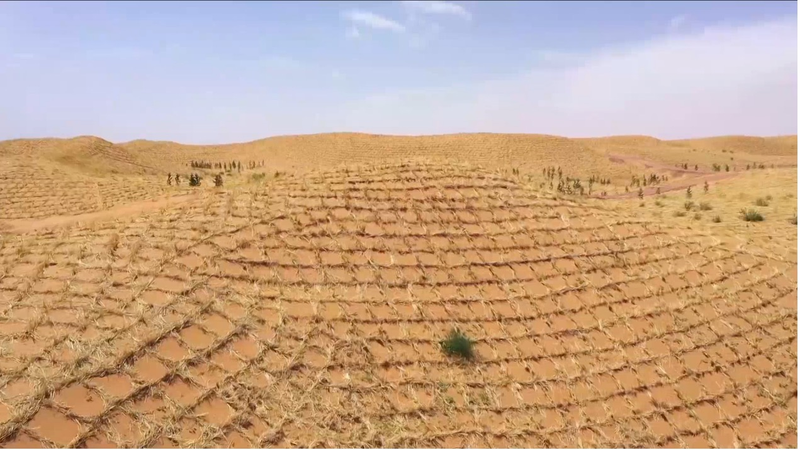In Zhongwei, a city in northwest the Chinese mainland’s Ningxia Hui Autonomous Region, sandstorms once swept across the landscape like fleeting giants. But today, a quiet army of desert fighters has woven 430,000 mu (28,667 hectares) of straw checkerboards into a vibrant green network—what locals now proudly call the 42-km Green Great Wall.
Over seven decades, generations have perfected this low-tech, high-impact solution. Each checkerboard, a simple grid of straw, acts like tiny sand traps. Studies show that areas protected by these straw nettings have seen a 60% drop in soil erosion and a 45% increase in plant coverage. The result? A once-barren stretch of desert now teems with life.
More than a local triumph, Zhongwei’s project has caught the eye of the international community. At the latest UN Convention to Combat Desertification, this model was spotlighted as a blueprint for sustainable land management. Its secret lies in combining traditional wisdom with community-driven action—anywhere from local farmers to young volunteers, all pitching in to plant shrubs and spread straw.
A Blueprint for Global Ecological Governance
- Proven Results: 430,000 mu transformed; sandstorm frequency cut in half.
- Low-Tech, High-Impact: Straw checkerboards cost up to 70% less than concrete barriers.
- Community Power: Over 5,000 local residents and students engaged in restoration work.
As the world grapples with land degradation and climate change, Zhongwei’s straw checkerboards offer a replicable roadmap. From the Sahel to the steppes of Central Asia, this approach shows that sometimes, the simplest ideas lead to the biggest shifts—one straw grid at a time.
Reference(s):
China's straw checkerboards guide global ecological governance
cgtn.com




